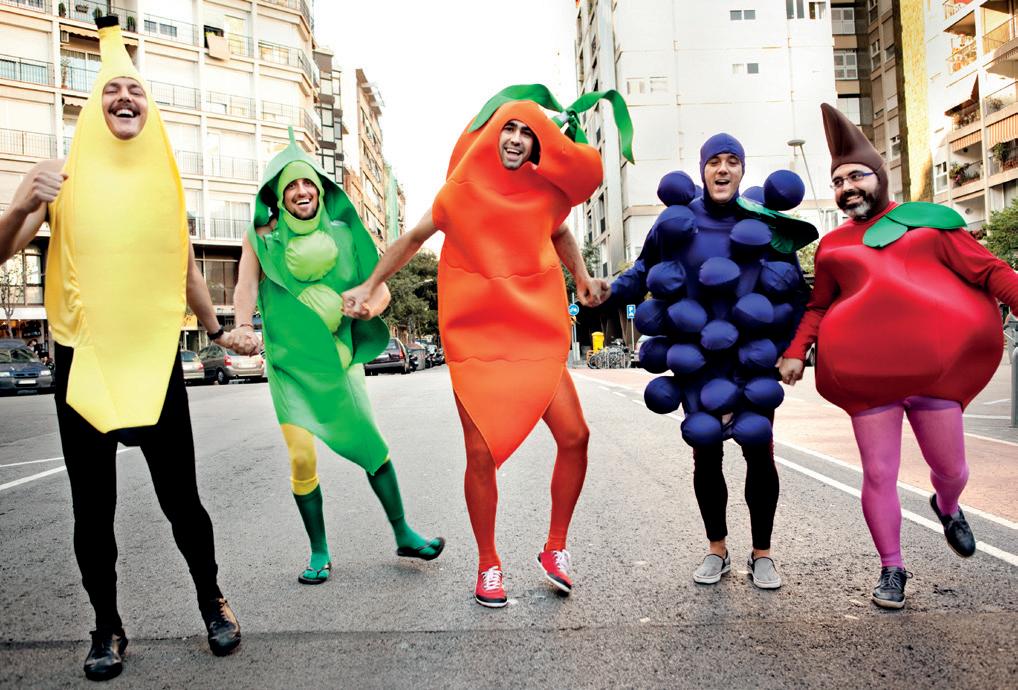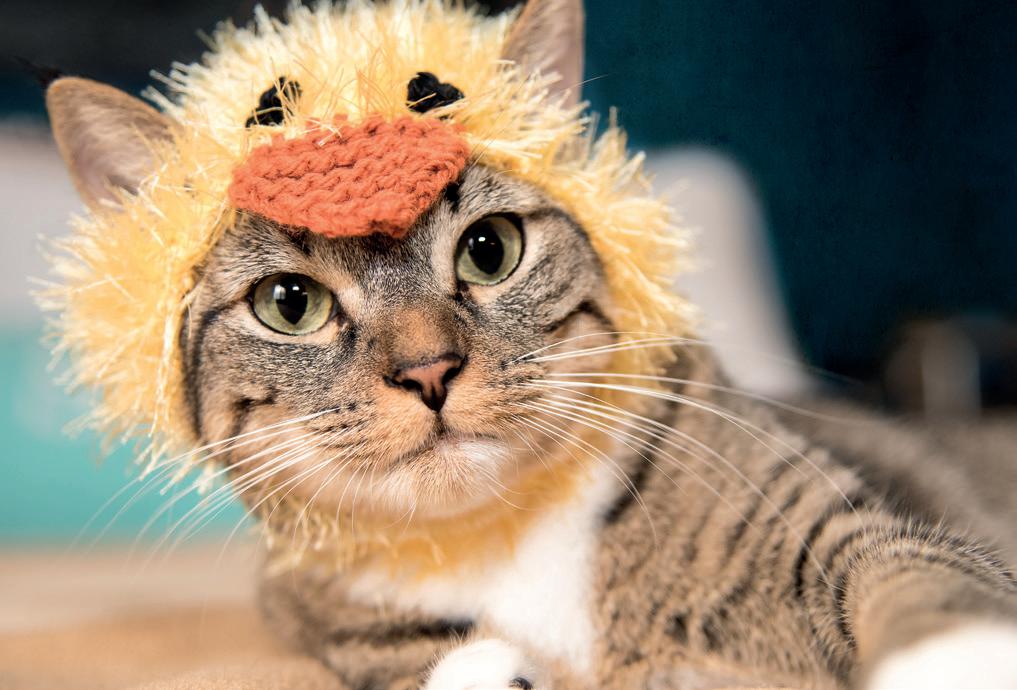
Welcome p 4 A A lucky pilot; Descriptive verbs; Phrasal verbs; Childhood memories; Elements of a story; Talking about past routines B Future plans; Life plans; Future continuous; Future perfect; Being emphatic: so and such; Extreme adjectives
FUNCTIONS & SPEAKING GRAMMAR VOCABULARY
Unit 1 Survival instinct p 12
Issuing and accepting a challenge Discussing situations and your emotional reactions to them
Introducing information Discussing nomadic people
Verbs followed by infinitive or gerund Verbs which take gerund and infinitive with different meanings: remember, forget, regret, try, stop
Relative clauses (review) which to refer to a whole clause Omitting relative pronouns Reduced relative clauses
Groups of people Phrasal verbs (1)
Verbs of movement Adjectives to describe uncomfortable feelings WordWise: Expressions with right Unit 2 On the road p 20
Life Competencies: Giving yourself a challenge , Culture: Nomadic people , Review Unit 3 Growing up p 30
Unit 4 The art of thinking p 38
Emphasising Discussing sharenting
Expressing frustration Guessing game to practise personality adjectives
Quantifiers so and such (review) do and did for emphasis
be / get used to (doing) vs. used to (do) Adverbs and adverbial phrases
Literature: About a Boy by Nick Hornby, Life Competencies: Being supportive , Review
Unit 5 Too much tech? p 48
Unit 6 Better together p 56
Advice and obligation Talking about technology
Obligation, permission and prohibition (review)
Necessity: didn’t need to / needn’t have Ability in the past (could, was / were able to, managed to, succeeded in)
Costumes and uniforms Bringing up children
Personality adjectives
Common adverbial phrases WordWise: Expressions with good
Technology (nouns) Technology (verbs)
Using intensifying comparatives Discussing community projects Role play: The missing suitcase
Comparatives Linkers of contrast
Ways of speaking Friendship idioms
Cheering someone up Silver linings game: thinking of optimistic solutions
Culture: Four of the smartest cities , Literature: Little Women by Louisa May Alcott, Review Unit 7 Rose-tinted glasses p 66
Ways of referring to the future (review) Future continuous (review) Future perfect (review)
Phrases to talk about the future: about to, off to, on the point of, due to Feelings about future events
WordWise: Expressions with so
Unit 8 List it! p 74
Saying ‘Yes’ and adding conditions Discussing wonders of the world
Conditionals (review) Mixed conditionals
Phrasal verbs (2) Alternatives to if: suppose, provided, as long as, otherwise, unless Life Competencies: Being tactful , Culture: Seven wonders of the natural world , Review Unit 9 Take charge p 84
Asking someone politely to change their behaviour Discussing further education and work experience
Making a point Introducing news Interviewing a well-known person Discussing the ethics of journalism
I wish and If only I would prefer to / it if, It’s time, I’d rather / sooner
Reported speech (review) Reported questions and requests
Sharing news Reporting verbs
Life’s ups and downs Work and education Unit 10 Unbelievable news p 92
WordWise: Expressions with way
Speculating (past, present and future) Cause and effect linkers
Speaking persuasively Giving a presentation about human activity and the natural world
Passive report structures The passive: verbs with two objects
Culture: A multinational enterprise , Literature: The Lost World by Arthur Conan Doyle, Review
Geographical features Verb + noun collocations
Space idioms Adjectives commonly used to describe films Unit 12 Off the beaten track p 110
Literature: The Remains of the Day by Kazuo Ishiguro, Life Competencies: Being yourself , Review Unit 11 Shoot for the stars p 102 Sympathising about past situations Discussing films Discussing life in space
2
CONTENTS
C Conversations; Personality; Using should; Career paths; Decisions; Permission
D A change of lifestyle?; Reporting verbs; Negative adjectives; Another country; Changes; Regrets: I wish … / If only
PRONUNCIATION THINK! SKILLS
Dipthongs: alternative spellings Train to Think: Thinking rationally
Phrasal verb stress Train to Think : Distinguishing fact from opinion Values: Learning from other cultures
B2 First for Schools practice
Adding emphasis Train to Think: Changing your opinions
Pronouncing words with gh Train to Think : Lateral thinking Values: Appreciating creative solutions
B2 First for Schools practice
The schwa /ə/ sound Train to Think: The PMI strategy
Linked words with /dʒ/ and /tʃ/
Train to Think : Exaggeration Values: Doing good
B2 First for Schools practice
Intonation: encouraging someone
Train to Think : Learning to see things from a different perspective
Weak forms with conditionals Train to Think : The ‘goal-setting’ checklist Values: Lists
B2 First for Schools practice
Linking: intrusive /w/ and /j/ Train to Think : Jumping to a hasty conclusion
Linking: omission of the /h/ sound Train to Think : Recognising the source of a statement Values: News or not?
B2 First for Schools practice
Stress on modal verbs for speculation
Train to Think : Spotting flawed arguments
Linking: intrusive /r/ Train to Think : Exploring hidden messages Values: Human activity and the natural world
B2 First for Schools practice
Reading Article: Surviving for seven weeks Article: How to survive in the wilderness Writing A diary page about an experience Listening Radio show: Exams advice
Reading Article: Getting to work Blog: A Brazilian adventure Writing An informal email Listening Radio quiz about migration in nature
Reading Blog: An embarrassing dad Website page: To sharent or not to sharent Writing An essay about parenting Listening Podcast about a hero dad
Reading Article: A big change for artists Web post: A problem on Your answers here Writing A story beginning: ‘I had no idea what to do.’ Listening Talking heads – thinking imaginatively
Reading Article: A digital detox Article: Great success for teenage teachers: When silver surfers get connected Writing Instructions Listening A conversation about an invention
Reading Email: Comic Con Article: CoderDojo Coolest Projects International Writing An essay about social media Listening Podcast: Friendships
Reading Blog: My takes on life, the universe and everything Website page: Quotations for worriers Writing A short story ending: ‘Every cloud has a silver lining’ Listening Radio show: Silver Linings
Reading Book review: The Checklist Manifesto by Atul Gawande Blog: Elisa’s list blog Writing An essay: A wonder of the natural world Listening A conversation about bucket lists
Reading Presentation: Making difficult decisions Quiz: What kind of a friend are you? Writing An article for the school magazine Listening A radio programme about life choices
Reading Magazine article: Fake news Article: The Secret Paparazzo Writing A magazine article about an interview with a well-known person Listening An interview with a foreign correspondent
Reading Article: A mission to Mars Blog: Top four space films of all time Writing A report about a problem on a school trip Listening Podcast about space tourism
Reading Article: Saving great discoveries! Article: Explorers: a friend to the native people: Cândido Rondon Writing A short biography Listening A talk about discovering new species
Pronunciation pages 120–121 Get it right! pages 122–126
Speaking activities pages 127–128
3
GROWING UP
Watch the video and think: what’s the hardest part of being a teenager?


REAdING 1

SPEAKING Look at the photos and discuss the questions in pairs. 1 Do you enjoy dressing up? Why do you think people enjoy wearing costumes?

Do you think fancy dress is just for kids?



Do you think it’s okay to make animals wear costumes? Why (not)? 2 SPEAKING SPEAKING Look again at the photos, and look at the title and the photo on the next page. What do you think the blog will be about?



to





did Rain’s parents do on his first day of high school?
many days did Rain’s dad, Dale, wave at the bus?

other family members got involved?
were the first and last costumes that Dale wore?
How much did Dale spend on the costumes?
How did he keep the cost so low?
What did Rain think about his dad dressing up at the beginning? And at the end?
What happened at the beginning of the next school year? 5



SPEAKING Work in pairs and discuss the questions.
Does Dale sound like a good dad? Explain your reasons.
How would you feel if your dad was like Dale? Why?
Why do you think Dale wanted to dress up?
3
1
2
3
4
5
6
7
2
3
FUNCTIONS: emphasising GRAMMAR: quantifiers; so and such
do and did for emphasis VOCABULARY: costumes and uniforms; bringing up children
A C B D 30
07
SPEAKING
2
3
3 3.01 Read and listen
the blog to check your ideas. 4 Read the blog again and answer the questions.
What
How
Which
What
8
SPEAKING
1
OBJECTIVES
(review);
AN EMBARRASSING DAD
American teenager Rain Price was waved off to school from the bus stop outside his house, by his dad, every day for a whole school year. OK, so that doesn’t sound too bad, but this was no ordinary goodbye, because each day Rain’s dad did it while wearing a different fancy-dress costume!





It all started on 16-year-old Rain’s first day of high school. Like many proud parents, Rochelle and Dale, Rain’s mum and dad, sent him off to school with a big wave from the doorstep. That evening Rain made the mistake of complaining about how embarrassing they were, which gave Dale a great idea. The next morning, as Rain stepped onto the bus outside his house, he could hear all of his school friends laughing at something. He turned around and to his horror, there was his dad waving him off, dressed as an American football player, complete with ball and helmet. But that was just the beginning. For the next 180 school days, come rain or shine, Dale waved goodbye to his son dressed in a different costume. One day he was a king waving his sword and shield, the next a chef in his hat and apron, the following a pirate. Then there was Elvis and
Dale even got other members of the family involved, using Rain’s younger brother to play Batman alongside his Robin.
Amazingly, Dale only spent $50 on all of the costumes. He got loads of costumes from the family fancy-dress collection and then there were several friends and neighbours who were happy to help.
Some of Rain’s friends didn’t find it funny, but most of them looked forward to seeing what Dale would be wearing every day. And Dale found an international audience for his dressing up, too, as each day Rochelle took a photo of her husband in fancy dress and put it on their blog, waveatthebus.blogspot.com, which became a hit on the internet. Even Rain was eventually able to see the funny side and realised that his dad was pretty cool after all. For the final farewell on the last day of school, Dale dressed up as a pirate and stood next to a sign which said: ‘It’s been fun waving at the bus. Have a great summer.’ But all good things don’t always come to an end. The new school year began, and Dale was there again, in fancy dress, to wave at the bus.
Changing your opinions









It can be a mistake to believe something just because it’s based on an opinion you’ve formed. Becoming a critical thinker means continually reflecting on your opinions, and being willing to change them if they aren’t based on evidence.
6 Which people from the story may have had these opinions at some point? Write their names.
1 ‘My dad is the most embarrassing person in the world.’
2 ‘Rain’s dad is really silly.’


3 ‘I don’t think Dale should do this – it’s going to cost a lot of money.’






7 SPEAKING SPEAKING Work in pairs and discuss how the people’s opinions in Exercise 6 changed throughout the school year and why.
Initially, Rain thought that his dad was the most embarrassing dad in the world. But, with time, he realised that maybe that wasn’t true. He learned to appreciate his dad’s sense of humour.
8 SPEAKING SPEAKING Work in groups and discuss some opinions that you or family members have had that have changed. Think about music, school, fashion, friends, etc.



If you think you have the world’s most embarrassing dad, then think again.
31 GROWING UP UNIT 3
Quantifiers
1 Look at the blog on page 31 and complete the sentences. Then complete the rule with loads of, a little, all, several and none.
1 Like proud parents …
2 He could hear of his school friends laughing at something.
3 He got of costumes from the family fancy-dress collection.
4 There were friends and neighbours happy to help.
5 of his friends didn’t find it funny, but of them looked forward to it.
RULE: Quantifiers are words and expressions that we use to talk about amount.
0%
6 hardly any a few / 7 , not many / much, a small number of some / 8 9 / a lot of, lots of, plenty, much / many, a good deal of most , almost all, the vast majority of 10
VOCABULARY Costumes and uniforms
4 SPEAKING SPEAKING Look at the list of clothes and accessories. What costumes might people use these items for? Discuss in pairs.
• sword and shield
• leather jacket
• wig
• snorkel
• poncho
• helmet
• bathrobe
• mask
• apron
• football top
5 Look at the photos. Who is wearing a costume? Who is wearing a uniform? Who is wearing a kit?
100%
2 Choose the correct words.
1 I’ve got a few / loads of followers on my YouTube channel – more than 20,000.
2 I spend a lot of / hardly any time with my friends –we meet up every day after school and most weekends, too.
3 I spend most / hardly any of my time on my tablet. It’s the most important thing I’ve got.
4 A small number / Most of my teachers are really nice. I really like this school.
5 Most / All of my family live near me, but I’ve got an uncle who lives in Australia.
6 I spend almost all / hardly any of my money on downloads. I don’t really care about music.
3 SPEAKING SPEAKING Work in pairs and discuss the sentences in Exercise 2. Which of them are true for you?
workbook page 28
6 SPEAKING SPEAKING Work in pairs and discuss the questions.
1 Do you or does anybody you know wear a uniform for work? Describe it.
2 Can you list five jobs in which people wear uniforms?


3 Describe a sports kit to your partner, but don’t say what sport it’s for. Can your partner guess?
4 Describe your perfect costume to wear to a fancy-dress party.

GRAMMAR Grammar video 08
workbook page 30
32
A B C
LISTENING
7 Look at the photos. What do you think the podcast will be about?
8 3.02 Listen to the podcast. Mark the sentences T (true) or F (false).
1 This is a story with a tragic ending.
2 This is a heart-warming story of a father’s love for his daughter.
3 We learn how a father is motivated by his daughter’s love of the outdoors.
4 Ricky van Beek regularly competes in the Paralympics with his daughter, Maddy.
5 Many people are inspired by watching the father and daughter duo compete in triathlons.

9 3.02 Listen again and choose the correct answers.
1 What is unusual about Maddy and her father, Ricky van Beek, competing together in outdoor races?
A Ricky finds walking difficult.
B Maddy has a condition that means she is unable to walk.

C Maddy has a fear of water.
2 What was a major handicap for Ricky when they began racing?
A He smoked heavily and he was not very fit.
B He couldn’t give up smoking.
C He didn’t like running on bumpy roads.
3 What is the main motivation for Ricky?
A the feeling of freedom that running gives him
B seeing the joy that it gives his daughter
C being an inspiration to others
4 What will Ricky do if Maddy can no longer race with him?
A He will give up racing.
B He will continue to race with her in his heart.
C He will find another sport for her to participate in.
5 How does seeing them race together make people feel?
A They are inspired to take part in future marathons.
B They wish that they could race with their daughters.
C They feel moved by the love Ricky’s actions show for his daughter.
SPEAKING
10 Work in pairs and discuss the questions.
Look at the examples below. Have your parents or your siblings ever made a similar sacrifice for you or a good cause you are passionate about?
• done a sponsored swim or walk with you
• baked cakes to help you raise money for charity

• climbed a mountain with you
• helped you when you were scared
• given up their time to teach you to play a musical instrument
11 Have you ever done any of these things, or something similar, for a brother or sister, or a friend?
33 UNIT 3 GROWING UP
NOT TO SHARENT TO SHARENT OR

Does this sound familiar? Do your parents post photos of you online? Are there photos out there that you really don’t want the world to see?
We all know that parents just want to do their best for their children. However, parents around the world are creating a digital footprint for their children before they can give consent. Future employers might be able to access those images online.
French police have warned that parents could face future lawsuits from their children for violating their privacy. Under French privacy law, you are currently not allowed to publish a photo of someone without their consent. Some children have publicly asked their parents not to share photos on Instagram or on their blogs. Children grow up fast and parents must respect that.


‘Mom, we’ve discussed this. You may not post anything without my consent.’ Apple Martin famously wrote the above comment under a selfie taken by her famous mother, Gwyneth Paltrow, of the two of them skiing, and a media storm followed.
The daughter of Christie Tate, a mummy blogger, found lots of essays and photos of herself online when she googled herself. She did ask her mother if the content could be taken down, but her mother refused.
Ray Fitzgerald, a parenting coach, advises his followers to stick to the ‘three P rules of posting’:

• PRIVACY – Make sure private images stay private and check that your privacy settings are as tight as possible.














• PERCEPTION – If you were a teenager, would you like your parents to share that picture of you online? If the answer is no, then don’t post it.
• PERMISSION – Always ask a teenager’s permission before posting an image.
I asked some teenagers and here are some of their comments:
I don’t usually mind. My mum and dad have given me a very happy childhood. They’ve been great parents. But then last week my mum shared a picture of me and her in the park. It was such a bad picture. I was so embarrassed. Sharenting is bad news. SAM


My mum has so few followers, I don’t mind. But it’s different if your parents are famous or have thousands of followers. Gwyneth Paltrow is very famous and so many people saw that skiing picture. I do think her daughter was right to be angry. JACK

I did see the picture and I do follow Gwyneth Paltrow. I didn’t think the picture itself was so terrible. However, I do understand her daughter’s anger. JENNY
After much discussion, most people seem to agree that it’s time to stop sharenting when your children are about 12 or 13. The pictures can be so embarrassing and they’re out there forever. Where do you stand on this issue?


REAdING
1 Work in pairs. Look at the photos and the title of the article. What do you think ‘sharenting’ is?
2 3.03 Read and listen to the article to check your ideas.
3 Read the article and the comments again. Who said or did these things? Write the name.
1 had previously discussed the issue of sharenting with her mother.
2 made the decision to continue sharenting against her daughter’s wishes.


3 said parents should think carefully before they share.
4 thinks it was OK to share some pictures and not others.
5 thinks it’s OK to sharent when very few people will see the photos.

6 thinks parents should respect their children’s wishes.
4 SPEAKING SPEAKING Work in pairs and discuss the questions.
1 Have your parents ever shared a photo of you that you wish they hadn’t?
2 What are your opinions on sharenting? Do you think parents should ask for your consent before posting a picture on Instagram or on other social media?
SPEAKING
5 Read each sentence and choose a number from 1–5 (1 = I strongly agree, 5 = I strongly disagree.)
1 Teenagers should always be supported by their parents. 1 2 3 4 5
2 Parents are not the most important people in teenagers’ lives.
1 2 3 4 5
3 Parents should give teenagers freedom of choice in everything. 1 2 3 4 5
4 Teenagers should spend as much time as possible with parents/family.
1 2 3 4 5
6 Discuss your answers in groups. Which question(s) do almost all of you agree on? And which one(s) do almost all of you disagree on? Why?
‘I can’t believe you put that photo of me on Instagram!’
34
GRAMMAR
so and such (review)
7 Write the correct words to complete the sentences. Check in the article on page 34, then complete the rule with so and such.
1 I was embarrassed.
2 It was a bad picture.
RULE: We use so and such to emphasise. 3 (a/an) + (adjective) + noun 4 + adjective
We often follow so and such with a that clause to talk about consequences.
It was such a difficult question that I didn’t know what to say.
It was so hot that I couldn’t sunbathe.
8 Complete the sentences with so or such and your own ideas.
0 It was such a hot day that we stopped working and went to the beach .
1 The homework was difficult that …
2 He’s a good friend that …
3 The train was late that …
4 It was an exciting book that … workbook page 28 do and did for emphasis
9 Complete the sentences from the article on page 34 with the missing word, then read the rule.
1 I understand her daughter’s anger.
2 She ask her mother if the content could be taken down, but her mother refused.
RULE: We can use the auxiliaries do, does, did to add emphasis to what we want to say, often when we’re contradicting someone.
A: You didn’t like the film, did you?
B: I did like it!
A: She doesn’t want to go to the party.
B: She does want to go – she’s just shy.
Look
too and not enough To say something is more than we need, we use too, and to say that it’s less, we use not enough too + adjective
too + many + countable noun too + much + uncountable noun not + adjective + enough
10 Complete the second sentence so it has a similar meaning to the first, using the word given and so/such, did for emphasis or too/not enough. Write between two and five words.
1 There were too many people at the meeting. Some people had to stand. There at the meeting, so some people had to stand. (chairs)
2 He spends too much money. He money. (save)
3 This book isn’t interesting enough. I’m not going to finish it.
This book is finish. (boring)
4 You’re wrong. I thought the book was really, really good. I the book. (like) workbook page 29
PRONUNCIATION
Adding emphasis Go to page 120.
VOCABULARY
Bringing up children
11 Complete the phrases in the text with the words in the list.
bring | childhood | do (x2) | get | grow | soft | strict
The toughest job in the world Most parents want to 1 their best for their children and help them 2 ahead in life. They try to 3 their children up well and give them a happy 4 . But it’s not always so easy. Children 5 up so fast these days and it can be difficult to get it right all the time. Of course, parents know the importance of school and they want their children to 6 well, but what happens when the child doesn’t want to try? If they are too 7 , their children might rebel. If they are too 8 , then the children might only do the things they want to do. It’s a difficult balancing act and, of course, parents get it wrong sometimes. After all, they’re only human.
e to describe a parent who has very few (or no) rules f be as good as you can g to describe a parent who has lots of rules h the time of being a child workbook page 30 UNIT 3 GROWING UP
12 Match phrases 1–8 from Exercise 11 with their meanings. a make advances in life b raise c get older d be a success 35
1 Look at the poster and then read the introduction to the extract. Who do you think the people on the poster are?
2 3.06 Read and listen to the extract. What two choices does Marcus have?

About a Boy
 by Nick Hornby
by Nick Hornby
Marcus is a schoolboy who lives with his mum, who is depressed. Marcus has a hard time at school – he gets bullied quite a lot, especially because of the clothes his mum makes him wear. Recently, Marcus has started to become friends with Will, a rich, lazy man who buys him new trainers. Here, Marcus and his mum are going home after visiting Will at his flat.
‘You’re not going round there again,’ she said on the way home.
Marcus knew she’d say it, and he also knew that he’d take no notice, but he argued anyway.
‘Why not?’
‘If you’ve got anything to say, you say it to me. If you want new clothes, I’ll get them.’
‘But you don’t know what I need.’
‘So tell me.’
‘I don’t know what I need. Only Will knows what I need.’ ‘Don’t be ridiculous.’
‘It’s true. He knows what things kids wear.’
‘Kids wear what they put on in the mornings.’
‘You know what I mean.’
‘You mean that he thinks he’s trendy, and that […] he knows which trainers are fashionable, even though he doesn’t know the first thing about anything else.’





That was exactly what he meant. That was what Will was good at, and Marcus thought he was lucky to have found him.
‘We don’t need that kind of person. We’re doing all right our way.’
Marcus looked out of the bus window and thought about whether this was true, and decided it wasn’t, that neither of them were doing all right, whichever way you looked at it.
‘If you are having trouble, it’s nothing to do with what shoes you wear, I can tell you that for nothing.’

















‘No, I know, but –’










‘Marcus, trust me, OK? I’ve been your mother for twelve years. I haven’t made too bad a job of it. I do think about it. I know what I’m doing.’

Marcus had never thought of his mother in that way before, as someone who knew what she was doing. He had never thought that she didn’t have a clue either; it was just that what she did with him (for him? to him?) didn’t appear to be anything like that. He had always looked on being a mother as straightforward, something like, say, driving: most people could do it, and you could mess it up by doing something really obvious, by driving your car into a bus, or not telling your kid to say please and thank you and sorry (there were loads of kids at school, he reckoned, kids who stole and swore too much and bullied other kids, whose mums and dads had a lot to answer for). If you looked at it that way, there wasn’t an awful lot to think about. But his mum seemed to be saying that there was more to it than that. She was telling him she had a plan.
If she had a plan, then he had a choice. He could trust her, believe her when she said she knew what she was doing […] Or he could decide that, actually, she was off her head […] Either way it was scary. He didn’t want to put up with things as they were, but the other choice meant he’d have to be his own mother, and how could you be your own mother when you were only twelve?
He could tell himself to say please and thank you and sorry, that was easy, but he didn’t know where to start with the rest of it. He didn’t even know what the rest of it was. He hadn’t even known until today that there was a rest of it.
3 Read the extract again. Mark the sentences T (true) or F (false). Then correct the false sentences.
1 Will buys Marcus a new jacket.
2 Marcus’s mum is very fashion-conscious.
3 Marcus doesn’t agree that he and his mum are doing OK.
4 His mother doesn’t think she’s a good mother.
5 The other kids at school never did anything wrong.
6 Marcus didn’t think he was capable of being his own mother.
Literature
36
4 VOCABULARY Match the highlighted words in the extract with the definitions.

1 up-to-date with modern fashion
2 do it in a really bad way
3 had no idea
4 no matter how
5 thought 6 silly, stupid
7 crazy 8 simple, not complicated
5 SPEAKING SPEAKING Work in pairs and discuss the questions.
1 What do you learn about Marcus in the passage? What is he like?
2 What are your mum and dad good at? Think of the positive things about them.
FUNCTIONS Emphasising
6 Add so, such, do or did to the sentences to make them more emphatic. Make any other necessary changes.
1 He’s a good father.
2 She gets on well with children.
3 She’s patient.
4 My dad tried his best.
5 My parents made some mistakes.
6 She’s soft on her children.
7 SPEAKING SPEAKING Work in pairs. Who might be talking to whom in each of the sentences in Exercise 6? What was said before?
Our parents have always been a shoulder to cry on, but now we’ve reached an age where we want to be more independent. At this stage in our lives, we find some of their actions embarrassing and they find some of our reactions upsetting.
First, let’s look at what embarrasses us. Top of my list is dressing differently, which applies to my mum. In fact, my friends think she’s cool, but I just wish she would dress like the other mothers. Second on my list is being affectionate in public. My dad is guilty of this. He called out: ‘I love you’ from the car as he dropped me at the school gate, and all my friends heard him. It was so uncool. Now, let’s look at it from our parents’ point of view. Firstly, they have lost an adoring child, who once thought of them as heroes. Secondly, they’ve spent many years looking after you and now you’re rejecting their support. They find this difficult.
To conclude, I think parents should understand that teenagers want to be more independent, and teenagers should understand that parents can feel rejected and that this can be hurtful.
8 WRITING Choose a sentence from Exercise 6 and develop it into a six-line dialogue. The sentence you choose could appear at the beginning, middle or end.
9 SPEAKING SPEAKING Think about someone you know who is really good with children or teenagers. Then talk to your partner about your person. Give examples and use emphasis when you can.

WRITING
An essay
1 INPUT Read the essay and find two embarrassing things parents sometimes do and two ways in which having a teenager can be hard for parents.
2 In pairs, think of more embarrassing things your parents or other people’s parents do. Write a list.
3 ANALYSE Find these phrases in the essay and match them with their meanings. 1 a shoulder to cry on 2 guilty of 3 feel rejected 4 being affectionate 5 in public
a has done something wrong/bad b in front of other people c showing your love d feel sad and pushed away e someone who listens to you and is sympathetic
4 List some of the ways the author introduces a point.
First, Top of my list, , , , , ,



5 PLAN You’re going to write your own essay about the same topic. Make notes for each of the four paragraphs:
• a short introduction
• two or three things from your point of view as a teenager
• two or three things from your parents’ point of view
• a conclusion, giving your final opinion.
6 PROdUCE Write your essay: Parents can be really embarrassing sometimes! Use your notes from Exercise 5 (about 200 words).
37 UNIT 3 GROWING UP
Parents can be really embarrassing sometimes!




























































 by Nick Hornby
by Nick Hornby


































